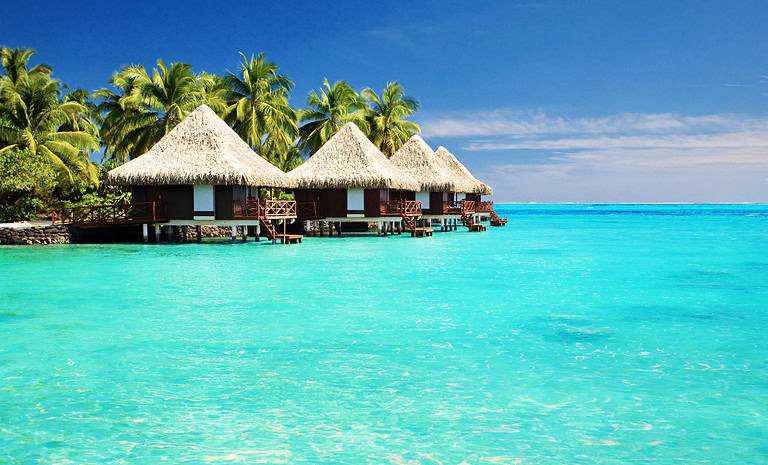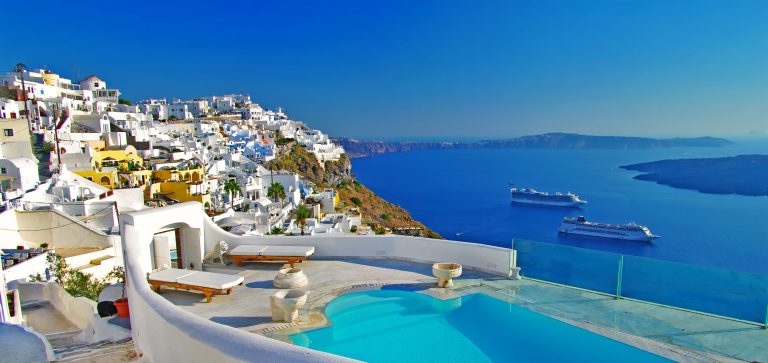Discover Paradise: Top 10 Eco-Friendly Resorts in Fiji for Sustainable Luxury
Exploring over 333 islands, I find Fiji’s eco-friendly resorts breathtaking. COMO Laucala Island offers 1,600 hectares of tropical landscapes and 25 luxury bures. Tokoriki Island Resort brings wellness and romance with 36 bures and villas. These places show Fiji’s best in eco-luxury.
Imagine exploring Six Senses Fiji on Malolo Island. It’s where wellness programs lead to detox and good sleep. VOMO Private Island tempts with hiking, scuba diving, and golf. Likuliku Lagoon Resort features 45 over-water villas in a luxury lagoon setting.

These resorts, including Matangi Private Island Resort’s 240-acre haven, focus on environmental care. With travelers seeking eco-friendly luxury, it’s good to know Fiji hosts many top resorts. Plus, 40% have important sustainability certifications.
Australia and South Africa have their charms, but Fijian resorts excel in eco-protection and cultural respect. They appeal to surfers, luxury lovers, and peace seekers. Here, indulgence and eco-consciousness blend, making each visit matter to our world.
What makes a resort in Fiji eco-friendly and sustainable?
In my journey to find eco-friendly resorts, Fiji caught my eye. It’s not just the stunning views but also its commitment to sustainability and the finer things in life. The mark of a true eco-friendly resort in Fiji is its green energy commitment, eco-friendly practices, and focus on coral reef conservation. These resorts blend luxury with environmental care in amazing ways.

One key practice is using solar power for energy. This green energy approach reduces the resort’s environmental impact. It also sets an example for luxury that respects the planet. Preserving coral reefs is another major effort. Many resorts help with initiatives to protect and restore marine life. This enriches the environment and lets guests help too.
It is crucial that these resorts balance luxury stays with eco-friendliness. They recycle and compost. They also use local materials for building and day-to-day operations. Many have started farm-to-table programs. This means food is fresh, travels less, and supports the local economy.
| Feature | Description |
|---|---|
| Energy Source | Solar panels and other renewable technologies to minimize reliance on non-renewable resources. |
| Waste Management | Comprehensive recycling programs and initiatives aimed at zero waste. |
| Local Sourcing | Use of local materials and produce to reduce transportation emissions and support local businesses. |
| Preservation Efforts | Active involvement in coral reef conservation and other environmental protection activities. |
| Guest Engagement | Opportunities for guests to participate in environmental sustainability programs. |
By incorporating these practices, the eco retreat provides a memorable experience. At the same time, it cares for and enriches the local environment. This blend of sustainability and luxury is attractive. It draws travelers who care about their environmental impact. These resorts promote environmental awareness and encourage guests to join conservation efforts. This enhances the travel experience and aids global sustainability efforts.
All these actions create a travel experience that honors and enhances Fiji’s nature and communities. So, when I look for my next holiday spot, these elements are key. They promise beauty, relaxation, and peace of mind. This comes from supporting eco-friendly and responsible tourism.
Which are the best eco-resorts in Fiji for a luxurious yet sustainable stay?
If you’re looking for luxury Mamanuca Islands eco-retreats, you’re in luck. The options blend luxury with eco-friendliness smoothly. Six Senses Fiji, located on Malolo Island, stands out. It runs entirely on solar power and uses organic gardens to feed its guests. These efforts highlight a commitment to both luxury and the planet.
Exclusive Vanua Levu luxury lodges offer a hidden paradise up north. Places like Koro Sun Resort & Rainforest Spa and Savasi Island Resort escape into nature. They focus on being green with solar power, organic farming, and conservation work. They show luxury can go hand-in-hand with caring for the environment.
In the distant sustainable Lau Group eco-retreats, the allure is in both their isolation and their green practices. They use solar energy, recycle, and protect coral reefs. It’s a mix of privacy, luxury, and care for the earth that makes them stand out in eco-tourism.
These regions and resorts have made big steps towards being sustainable. They use renewable energy, protect local animals like the Fiji crested iguanas, and help save the oceans. Their efforts ensure that guests enjoy luxury while helping the planet.
At these eco-resorts, caring for the environment and luxury go together. This approach doesn’t cut back on quality. Instead, it makes the experience richer. Whether it’s snorkeling, eating local organic food, or just relaxing, you feel close to nature. This makes staying at these places in Fiji both enjoyable and meaningful.
How do Fiji’s eco-resorts contribute to sustainable tourism?
In Fiji, eco-resorts are key to sustainable tourism. They offer luxury while being firm on caring for the environment and culture. A great example is Turtle Island, known for its eco-friendly ways.
Eco-resorts help the community, too. They hire locals, like at Turtle Island, giving them jobs and keeping the culture alive. This makes tourism better for everyone.
Eco-resorts also focus on marine life preservation. Turtle Island works with the World Wildlife Fund on turtle conservation. These efforts protect species and help with research.

Places like Taveuni Island and the Yasawa Islands have eco-resorts that are gentle on the environment. They use less energy and create less waste. This shows their commitment to nature.
| Factor | Impact | Example |
|---|---|---|
| Local Employment | Provides living wages and preserves cultural identity | Majority of Turtle Island staff are local hires |
| Environmental Programs | Preserves biodiversity and educates guests | Turtle Conservation and reforestation on Turtle Island |
| Cultural Preservation | Protects and shares local traditions and practices | Support of local crafts and cultural events |
| Visitor Education | Encourages sustainable practices among tourists | Eco-tourism tips shared with guests |
These resorts mix sustainable methods into their operations. They help the local economy and protect Fiji’s beautiful natural and cultural scenes. This blend of conservation and tourism is key for preserving Fiji for future travelers.
What unique experiences can guests enjoy at eco-friendly resorts in Fiji?
My visits to Fiji’s eco-resorts have shown me the beauty of nature and luxury combined. The luxury Beqa Island lagoon resorts stand out, offering unforgettable snorkeling adventures. Here, the ocean life is vibrant, creating a diver’s paradise.
The exclusive Lomaiviti Group lodges immerse you in Fijian cultural activities. Experiences like the kava ceremony open a window to Fijian traditions. These lodges celebrate culture while fostering a sense of community.
The sustainable Rotuma Island eco-resorts focus on environmental harmony. Every aspect, from design to daily operations, is aimed at protecting nature. They use solar power and collect rainwater, proving luxury can coexist with sustainability.
| Eco-Resort Features | Cultural Activities | Environmental Initiatives |
|---|---|---|
| Luxury Beqa Island Lagoon Resorts | Kava Ceremony | Solar Power, Water Recycling |
| Exclusive Lomaiviti Group Lodges | Fijian Dance and Music | Rainwater Harvesting, Local Material Use |
| Sustainable Rotuma Island Eco-Resorts | Local Cuisine Preparation | Comprehensive waste management system |
Each resort offers a unique way to experience paradise. They let you live a moment that’s both luxurious and eco-friendly. You can snorkel in Beqa, enjoy cultural festivities in Lomaiviti, or relax in Rotuma’s green luxury. This shows that luxury and sustainability can enhance each other, making travel more meaningful.
Are all-inclusive eco-resorts available in Fiji?
Fiji’s stunning nature makes the idea of an all-inclusive eco-resort very appealing. The country hosts amazing eco-resorts that blend luxury with eco-friendliness. Yasawa Island Resort and sustainable Mana Island eco-retreats offer everything from meals to activities. They prove that you can enjoy luxury and take care of the planet at the same time.
The unique luxury Turtle Island eco-stays show the special side of Fijian hospitality. They focus on personal attention and environmental care. Guests can enjoy luxurious services that are eco-friendly, from the food they eat to the adventures they embark on.
Table of Benefits of All-Inclusive Eco-Resorts in Fiji
| Eco-Resort | Key Benefits | Sustainability Practices |
|---|---|---|
| Yasawa Island Resort | All-inclusive meals and activities, Ocean-view accommodations | Solar power, local staffing, and cultural preservation |
| Turtle Island Resort | Private beaches, Personalized service | Organic gardens, renewable energy initiatives |
| Mana Island Eco-Retreats | Family-friendly, Rich marine life exploration | Rainwater harvesting, eco-friendly waste management |
Staying at an all-inclusive eco-resort like those on Mana or Turtle Islands feels special. It’s not just about the convenience. It’s also knowing your stay respects the environment. This adds more joy to your vacation.
If you’re planning a Fiji trip and want an easy, green holiday, Yasawa Island Resort and similar places are perfect. Enjoy Fiji’s untouched beauty while staying in comfort at these excellent eco-resorts.
How do Fiji’s eco-resorts compare to other sustainable destinations in the South Pacific?
Discussing South Pacific sustainable destinations, Fiji often stands out. This is mainly because of Fiji’s sustainability initiatives that blend with the culture. These span across its 300 islands. Unlike others that quickly turn to big tourist developments, Fiji is careful. It has strict environmental policies, especially about big resorts that could hurt its lands.
Fiji shines with its unique eco-friendly accommodations too. The resorts are not just fancy places to stay. They stand for being environmentally friendly. Places like Six Senses Fiji and COMO Laucala Island not just indulge you. They also focus on solar power and growing food organically. This significantly cuts their carbon emissions.
| Feature | Fiji | Other South Pacific Destinations |
|---|---|---|
| Eco-Friendly Practices | Advanced, with a focus on solar energy and organic farming | Varies, some still in developmental phases |
| Accommodation Diversity | Wide range, from budget-friendly to luxury | Mostly focused on luxury |
| Surfing Seasons | Best from April to October | Consistent year-round in places like Samoa |
| Cultural Integration | Strong, with a focus on supporting the indigenous population | Often marketed, but not as deeply integrated |
Fiji’s stance on eco-tourism benefits the environment and supports local people. This all-around view of caring makes Fiji’s eco-resorts unique. In other South Pacific sustainable destinations, the effort might be more broken or aimed at making money.
Fiji leads with its dedication to being eco-friendly. It mixes its unique culture and beautiful sights in a special way. It offers solar-powered places to stay, tours led by locals, and careful use of nature. For travelers wanting real and meaningful experiences, Fiji’s efforts are a model.
What should travelers consider when choosing an eco-friendly resort in Fiji?
Choosing eco-friendly accommodations in Fiji means thinking about how to make your holiday kind to the Earth. Most eco-resorts are hidden away from busy areas. This means you should be ready for a remote experience. The environmental impact of the resort is also crucial. In Fiji, resorts use renewable energy and compost toilets to stay in tune with nature.
Eco-accommodations come with varying prices. They can range from FJ$300 to FJ$6,600 per night. This price supports sustainable practices. You might stay in a private bure or enjoy community conservation efforts. For example, the Jean-Michel Cousteau Resort works hard to protect marine life. Also, choosing a homestay or a green backpacker hostel can offer a different, sustainable experience.
The location of an eco-resort is key to your experience. Some are set in places like Kadavu, Taveuni, or Vanua Levu. These locations offer lots of activities because they’re isolated. But, resorts on Viti Levu are easier to get to. They offer a different kind of sustainable luxury.

When planning your trip, think about what you need and what you want to do. Fiji’s eco-resorts offer everything from family adventures to quiet retreats with nature. Each one shows how luxury and sustainability can go together. They allow you to make meaningful memories while caring for our planet.







